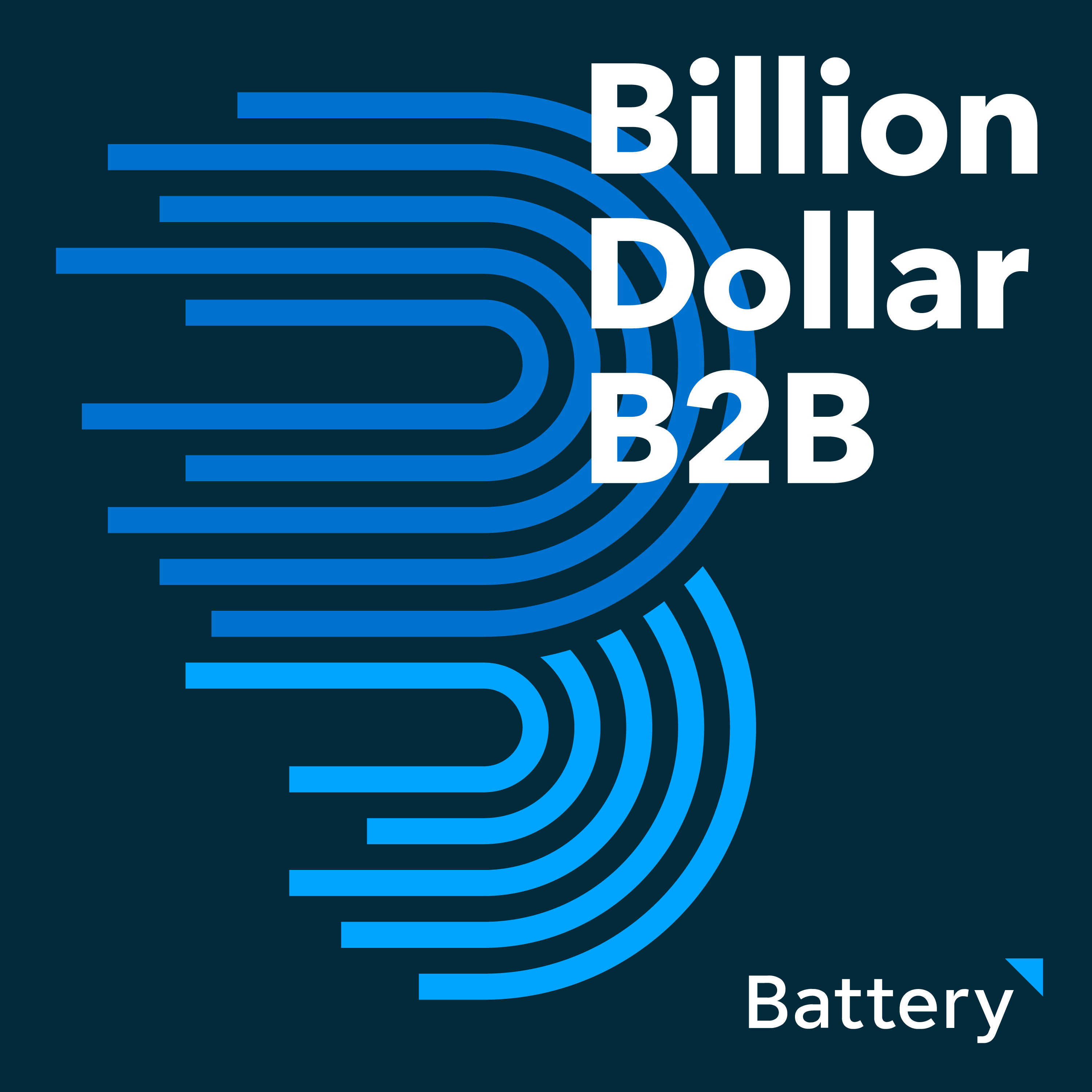Episode 3
Billion-Dollar B2B: Dmitri Alperovitch on Disrupting the Cybersecurity Market, Via the Cloud
In this episode of our “Billion-Dollar” B2B podcast, Battery’s Dharmesh Thakker talks with Dmitri Alperovitch, the co-founder and former CTO of endpoint-security pioneer CrowdStrike, about that firm’s evolution from a small startup to a global, cloud-native enterprise with more than a billion dollars in annual recurring revenue. How did CrowdStrike do it? According to Alperovitch, there were a number of factors that helped the company scale.
Take a listen.
Jump straight into:
00:20 - To the US from Russia: Dmitri Alperovitch’s early interest in cybersecurity - “I ended up going to college at Georgia Tech, where I was the first graduate out of their master's program then called Information Security.”
04:52 - How CrowdStrike was born: On solving a worldwide cybersecurity problem - “There are only two types of companies: Those that know that they've been hacked, and those that don't yet know.”
10:41 - Differentiation & success: Some of CrowdStrike’s key decisions - “Ultimately the way you win is to have the best team on your side, the best humans that are able to leverage tools very effectively.”
16:17 - From endpoints to the cloud: Is the cloud an attack vector? - “We took a lot of internal lessons learned from how do we protect CrowdStrike to how do we adapt that to protect the others?”
18:23 - The right moment to diversify: When did CrowdStrike introduce new products - “One of the keys to our philosophies was understanding adversaries and understanding what they're trying to do.”
22:13 - Enterprise sales & pricing: CrowdStrike’s sales strategy: “Our market is whoever is going to buy the product. If it's going to be a retail shop, we'll sell it to them. If it's going to be a bank, we'll sell it to them.”
30:01 - A distributed worldwide model: Building the team that led the company to success - “I knew that building something of this complexity would be super hard and we needed to find literally the best people in the world to do it.”
33:21 - Running a public company: The most important inflection points in Dimitri’s career - “We ran the company from day one as if it were a public company, it was really important for us not to miss quarters and to execute flawlessly.”
36:29 - Dimitri’s last piece of advice: Talent, culture, and problem-solving - “Talent is everything. Hire the best people you possibly can. Don't ever, ever settle.”
Resources:
Introducing “Billion-Dollar B2B”
The views expressed here are solely those of podcast guests, not Battery.
The information provided in this podcast is solely intended for the use of entrepreneurs, corporate CEOs and founders regarding Battery Ventures’ potential financing capabilities for prospective portfolio companies. The information is current as of the date it was published. The contents are not intended to be used in the investment decision making process related to any product or fund managed by Battery Ventures. Battery Ventures provides investment advisory services solely to privately offered funds. Battery Ventures neither solicits nor makes its services available to the public or other advisory clients.
Investments identified above are for illustrative purposes only. No assumptions should be made that any investments identified above were or will be profitable. It should not be assumed that recommendations in the future will be profitable or equal the performance of the companies identified above. For more information about Battery Ventures’ potential financing capabilities for prospective portfolio companies, please refer to our website. For a complete list of portfolio companies, please click here.
Content obtained from third-party sources, although believed to be reliable, has not been independently verified as to its accuracy or completeness and cannot be guaranteed. Battery Ventures has no obligation to update, modify or amend the content of this podcast nor notify its audience in the event that any information, opinion, projection, forecast or estimate included, changes or subsequently becomes inaccurate.

